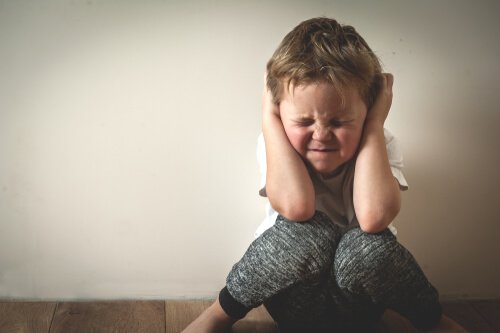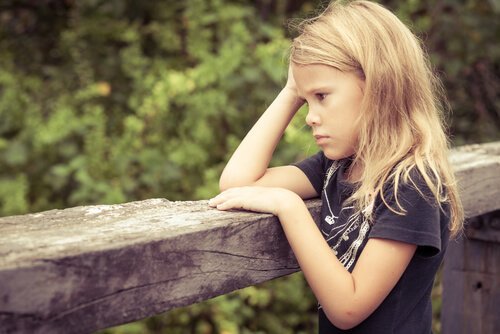(Exploring your Mind) Toxic stress can weaken the structure of a developing brain and have long-term learning, behavior, and physical and mental health consequences. In children, the body and brain’s excessive or prolonged response to stress can affect their development. In fact, toxic stress can have harmful effects on learning, behavior, and their health throughout their lifetime.
by Staff writer, February 28th, 2019
Learning to cope with adversity is an important part of healthy childhood development. When your body is threatened, it responds by increasing your heart rate, blood pressure, and stress hormones such as cortisol.
When a threat activates a young child’s stress response systems in an environment characterized by supportive relationships with adults, this environment cushions the psychological effects. Therefore, they develop healthy stress response systems. However, if the response to stress is extreme and long-lasting, and the child sees a disruption in these buffer relationships, their systems and brain structure can be affected.
Buy Book Earthing: The Most Important Health Discovery Ever!
In the absence of response relationships with adult caregivers, a child’s stress response systems switch to and remain on high alert. The overall effects increase the likelihood of developmental delays, learning problems, and behavioral problems in children. Furthermore, they’re more at risk of suffering from diabetes, heart disease, depression, drug abuse, alcoholism, and other health problems in adulthood.
Extensive biological research has shown that chronic and severe stress can become toxic to developing brains and biological systems. Significant adversity such as poverty, abuse, neglect, or a violent environment can all be triggers. Furthermore, a child can also be affected if their caregiver suffers from substance abuse or mental illness.

Stress in childhood
Early childhood experiences play an important role in how the brain develops and functions. Interactions between the child and their environment affect long-term learning, behavior, and health. In order to develop a healthy brain structure, it’s fundamental for the child to have receptive caregivers. Likewise, they need to develop positive relationships. These people will help them learn to manage stressful experiences.
In general, the stress response is a physiological response to an adverse event or demanding circumstance. It causes biochemical changes in the nervous, endocrine, and immune systems. However, stress isn’t always a negative thing. It can either be positive, tolerable, or toxic.
Positive responses to stress are essential for a child’s growth and development. A child receives support through their social and emotional shock absorbers, such as tranquility and parental protection. The child acquires motivation and resistance after each positive stress response.
The responses to tolerable stress are more severe, frequent, and persistent. Likewise, the body responds to a greater degree, and these biochemical responses have the potential to adversely affect brain structure.
In tolerable stress responses, once the adversity is eliminated, the brain and organs recover completely if the child is protected by receptive relationships. Thus, their caregivers must support them both socially and emotionally.
Toxic stress in children
Toxic stress in children is an abnormal response to stress. It results in a sustained increase in cortisol levels. Likewise, there’s a persistent inflammatory state in which the body fails to fix these changes. This happens regardless of whether or not the stress has gone away.
Toxic stress results in continuous stress response activation. In particular, the body fails to go back to normal. A lack of support, reassurance, or emotional attachment from caregivers can prevent a normal stress response.
Toxic stress in children is a very serious problem. Children who experience toxic stress are at risk of adverse long-term health effects. However, many of the effects may not manifest until adulthood. These adverse health effects include inadequate coping and stress management skills. Likewise, they could be at risk of mental illness, unhealthy lifestyles, or physical illnesses.
The more adverse a child’s experiences are, the more likely it is that developmental delays and subsequent health problems will manifest. For example, heart disease, diabetes, substance abuse, and depression, among others.

Brain development and toxic stress
Children experience external behaviors, such as aggression, and internal behaviors, such as anxiety and depression. The problem is that these behaviors aren’t unique to children whose development has been affected by stress and trauma. Often, the people around the child only see an aggressive child acting up. They don’t see a child who’s just trying to make someone aware of the pain they’re in.
The trauma that causes toxic stress and its effects can also have the subtle effect of normalization. Children who don’t have a broader view of the world may come to think that domestic violence is normal or that violence in the community is as natural as rain.
Buy Book Magical Child — Essential Info for Awakened Parents
In terms of development, a child who experiences adversity is at risk of permanent brain structure changes, epigenetic modifications, and modified genetic function. The long-term health effects on development are critical and include an increased risk of stress-related illnesses.
The response to toxic stress affects the neuroendocrine-immune network. Therefore, it also leads to a prolonged and abnormal cortisol response. The resulting immune dysregulation, which includes a persistent inflammatory state, increases the risk and frequency of infections in children.
In addition, scientists believe that the response to toxic stress can lead to other psychological disorders such as depressive disorders, a lack of self-control, post-traumatic stress disorder, and psychosis.
Also, we know that adults who experienced hardship in early childhood also suffer from more physical illnesses and poor health outcomes. These poor health outcomes are varied and include alcoholism, chronic obstructive pulmonary disease, depression, cancer, obesity, suicidal thoughts, or coronary artery disease, among many others.
What can we do?
Experts recommend making expert assistance more accessible. This is especially helpful for caregivers who don’t have enough knowledge and skills to help young children with toxic stress. Likewise, experts also suggest supporting existing intervention programs.
Buy Book The Boy Crisis: Why Our Boys Are Struggling and What We Can Do About It
Stillness in the Storm Editor: Why did we post this?
There are a great many factors that influence human consciousness. Arguably one of the most influential is the time we’re in the womb. Modern science and psychology continue to misinterpret prenatal and familial influences as genetic. However, a new understanding is emerging. Parents are faced with incredible challenges in the modern world. The Deep State has made being a parent a hindrance, a social problem, and a laborious task instead of the sacred joy that it truly is. If parents took more time to learn about the factors that influence their children, a new generation free of the hardships of the past would emerge that will have so-called superpowers simply due to the fact their innate potentials were allowed to blossom. The preceding information discusses the challenges and rewards of becoming a parent. With this knowledge in hand, the trials of being a parent can be alleviated simply by preparing for the child’s life before it has arrived. Additionally, the human race has yet to realize it’s full potential, but that potential is within our grasp should we choose to align ourselves to these fundamental truths.
– Justin
Not sure how to make sense of this? Want to learn how to discern like a pro? Read this essential guide to discernment, analysis of claims, and understanding the truth in a world of deception: 4 Key Steps of Discernment – Advanced Truth-Seeking Tools.
Stillness in the Storm Editor’s note: Did you find a spelling error or grammar mistake? Send an email to [email protected], with the error and suggested correction, along with the headline and url. Do you think this article needs an update? Or do you just have some feedback? Send us an email at [email protected]. Thank you for reading.
Source:
https://exploringyourmind.com/effects-toxic-stress-children-brain-development/

Leave a Reply